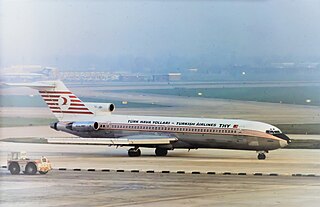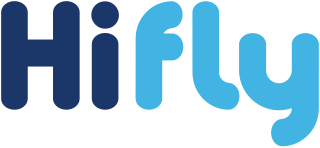
The Airbus A300 is Airbus's first production aircraft and the world's first twin-engine, double-aisle wide-body airliner, developed and manufactured by Airbus from 1971 to 2007.
Finnair Plc is the flag carrier and largest full-service legacy airline of Finland, with headquarters in Vantaa on the grounds of Helsinki Airport, its hub. Finnair and its subsidiaries dominate both domestic and international air travel in Finland. Its major shareholder is the government of Finland, which owns 55.9% of its shares. Finnair is a member of the Oneworld airline alliance.
Swiss International Air Lines AG, stylized as SWISS, is the flag carrier of Switzerland and a subsidiary of the Lufthansa Group, as well as a Star Alliance member. It operates scheduled services in Europe and to North America, South America, Africa and Asia. Zurich Airport serves as its main hub and Geneva Airport as its secondary hub.

The Airbus A340 is a long-range, wide-body passenger airliner that was developed and produced by Airbus. In the mid-1970s, Airbus conceived several derivatives of the A300, its first airliner, and developed the A340 quadjet in parallel with the A330 twinjet. In June 1987, Airbus launched both designs with their first orders and the A340-300 took its maiden flight on 25 October 1991. It was certified along with the A340-200 on 22 December 1992 and both versions entered service in March 1993 with launch customers Lufthansa and Air France. The larger A340-500/600 were launched on 8 December 1997; the A340-600 flew for the first time on 23 April 2001 and entered service on 1 August 2002.

The Airbus A330 is a wide-body aircraft developed and produced by Airbus. Airbus began developing larger A300 derivatives in the mid-1970s, giving rise to the A330 twinjet as well as the Airbus A340 quadjet, and launched both designs along with their first orders in June 1987. The A330-300, the first variant, took its maiden flight in November 1992 and entered service with Air Inter in January 1994. The slightly shorter A330-200 variant followed in 1998 with Canada 3000 as the launch operator.
Turkish Airlines, or legally Türk Hava Yolları Anonim Ortaklığı, is the flag carrier of Turkey. As of June 2024, it operates scheduled services to 349 destinations in Europe, Asia, Oceania, Africa, and the Americas. The airline serves more destinations non-stop from a single airport than any other airline in the world and flies to 130 countries, more than any other airline. With an operational fleet of 24 cargo aircraft, the airline's cargo division Turkish Cargo serves 82 destinations. The airline also owns a low-cost subsidiary, AJet.
Mahan Airlines, operating under the name Mahan Air, is a privately owned Iranian airline based in Tehran, Iran. It operates scheduled domestic services and international flights to the Far East, Middle East, Central Asia and Europe. Its main home bases are Tehran Imam Khomeini International Airport and Mehrabad International Airport.
SriLankan Airlines is the flag carrier of Sri Lanka and a member airline of the Oneworld airline alliance. It was launched in 1979 as Air Lanka following the termination of operations of the original Sri Lankan flag carrier Air Ceylon. As of April 2024, it is the largest airline in Sri Lanka by number of aircraft and destinations.
Airblue Limited is a private Pakistani airline with its head office on the ground floor of the Islamabad Stock Exchange (ISE) Towers in Islamabad, Pakistan. Airblue operates scheduled domestic and international flights, the latter to Saudi Arabia and the United Arab Emirates. As of February 2024, the airline serves three countries and 17 routes.
Lufthansa CityLine GmbH is a German regional airline with its headquarters on the grounds of Munich Airport. It is a wholly owned subsidiary of Lufthansa and maintains hubs at Frankfurt Airport and Munich Airport, from where it operates a dense domestic and European network as a member of Lufthansa Regional.
Edelweiss Air AG is a Swiss leisure and charter airline and the sister company of Swiss International Air Lines and a subsidiary of the Lufthansa Group. It operates flights to European and intercontinental destinations from its base at Zurich Airport.
Hi Fly is a Portuguese charter airline headquartered in Lisbon.

Turkish Airlines Flight 5904 was a Boeing 737-400 on an international repositioning flight from Adana Şakirpaşa Airport in Adana, Turkey, to King Abdulaziz International Airport in Jeddah, Saudi Arabia, which crashed on 7 April 1999 in the vicinity of Ceyhan, Adana Province, in southern Turkey, some eight minutes after takeoff. The flight was on its way to Saudi Arabia to pick up pilgrims from Jeddah, and as such took off without any passengers on board. All six crew members were killed in the crash.
Singapore Airlines Flights 21 and 22 are airline routes operated by Singapore Airlines between Singapore Changi Airport (SIN) and Newark Liberty International Airport (EWR). They were the two longest regularly scheduled non-stop flights in the world, until surpassed by Singapore Airlines Flights 23 and 24 between Singapore Changi Airport and John F. Kennedy International Airport (JFK) in November 2020.

On December 23, 1979, a Turkish Airlines Fokker F28 Fellowship 1000 airliner, registration TC-JAT, named Trabzon, on a domestic passenger flight from Samsun Airport to Esenboğa International Airport in Ankara, flew into the side of a hill 1,400 m (4,600 ft) near the village of Kuyumcuköy in Çubuk district of Ankara Province, 32 km (20 mi) north-northeast of the destination airport on approach to landing.

Turkish Airlines Flight 452 was a scheduled domestic passenger flight operated by a Boeing 727-2F2 of Turkish Airlines that crashed near Isparta on 19 September 1976 while en route from Istanbul Atatürk Airport (IST/LTBA) to Antalya Airport (AYT/LTAI), killing all 154 occupants on board. The crash is the deadliest aviation accident in Turkey's history.

Turkish Airlines Flight 345 was a scheduled domestic passenger flight operated by a Fokker F28-1000 Fellowship from Izmir Cumaovası Airport to Istanbul Yeşilköy Airport that crashed into the Sea of Marmara on 30 January 1975 during approach. It was the second worst accident involving a Fokker F28 and third deadliest aviation accident in Turkey at that time.

Hi Fly Malta is a Maltese charter airline based at Malta International Airport and a subsidiary of the Portuguese charter airline Hi Fly.

Air Leisure was an Egyptian charter airline headquartered in Cairo and based in Cairo International Airport. It connected several Asian cities, mainly in China, with Egyptian leisure destinations.

As of September 2024, Turkish Airlines operates a fleet of 373 Airbus and Boeing aircraft. The airline started its operations in 1933 with only five planes. In 1945, the airline bought over 30 cheap Douglas DC-3 and Douglas C-47s used in the Second World War from the United States of America. The DC-3s had numerous issues regarding their safety but remained in the fleet until 1967. The first jet-engined aircraft, a leased McDonnell Douglas DC-9, joined the fleet in the same year. In 1972, several McDonnell Douglas DC-10s were acquired, becoming the first wide-body aircraft of the carrier. Fokker F28 Fellowships also joined the fleet the same year. Boeing 727s were added two years later. With the Airbus A310 joining in 1985, Douglas DC-10 and Fokker F28s were transferred to Boğaziçi Hava Taşımacılığı to standardize the fleet. After evaluating the Boeing 747, McDonnell Douglas MD-11 and the Airbus A340, the carrier chose the latter as the replacement of the DC-10.












